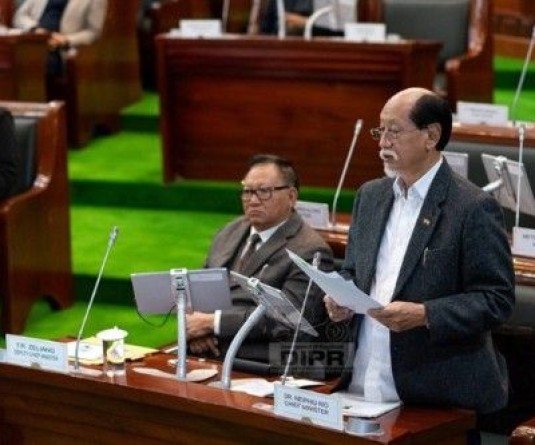
Morung Express News
Dimapur | February 21
Analyze this: A murder is committed. Five persons are witness to the homicide. The accused is forwarded to court after seven years. The witnesses cannot recall the exact details due to the bridge of time and make conflicting statements. The murderer gets off scot-free.
Correction, the forensic expert steps in and gives a critical analysis of the incidents and circumstances leading to the crime and furnishes sufficient scientific evidence to indict the guilty of murder.
Technically speaking, forensic science or forensic pathology is a branch of medicine used for legal purposes and concerned with determining the cause of death, examination of injuries due to crime and negligence, and examination of tissue samples relevant to crimes.
In Nagaland’s milieu, a lacuna still exists as far as the employment of forensic science in investigation purposes is concerned. The only forensic laboratory in Nagaland situated at Dimapur can also not be termed as a full-fledged laboratory. Per se, it is tagged as a mini laboratory. The State government’s blanket ban on jobs for science fields has put a dampener on the growth of this branch of investigation seen as a vital appendage to crime scene investigations. Adding to its decay, 10 mobile laboratories equipped with forensic accessories distributed to the 10 districts of Nagaland have not been properly utilized.
As Rupin Sharma, Senior Superintendent of Police (CID), Nagaland Police puts it: lethargy is the reason behind the inactivity of Police in using the investigating tools. Only ten fingerprint samples were collected last year. Rupin was speaking during the inaugural function of the first ever “Forensic Science Awareness Week” at Dimapur today. The three-day programme is witnessing the 28 odd staff of the establishment imparting the basics to children of 13 schools.
“I can guarantee you that a person who has done a course on forensic science will be given immediate appointment in the Nagaland Police,” Rupin said. There is a clear dearth of staff at the institution. Delhi is keen to provide sophisticated machinery and even funds but wants trained experts to safeguard the expensive machines. The Centre’s Ministry of Home Affairs is ready and willing to provide the hardware if the Nagaland government can facilitate jobs in the sector. Joint Director of the Forensic Science Laboratory, Dimapur L Peter Kikon had to say that the scope of forensic science in the state can be widened only by upgrading the five limbs of forensic science to a larger required number.
Only the five divisions dealing in examination of narcotics, documents, fingerprints, photography and a polygraph (lie-detecting) machine are functioning out of the 14 recognized branches. Other states have acquired sophisticated tools for examination of DNA and explosives and have even gone to the extent of analyzing cyber crime and then acting on it.
Two high-profile cases have been forwarded to the Dimapur centre. Lie detection tests have been carried out on a retired education director and those accused of serving demand notes to Planning and Coordination Minister Dr Shürhozelie and two others. The tests were conducted by Hekali, a DSP who was especially trained for the purpose. The results are still at a confidential level.






